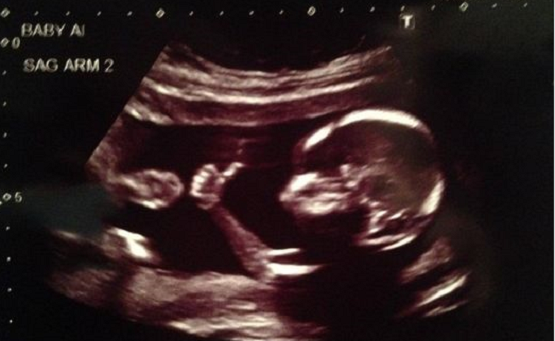For decades, pro-lifers have used facts about an unborn baby’s heartbeat to help demonstrate their worth.
Many years ago, scientific research established the fact that an unborn baby’s heart starts beating around four weeks, or 21 days, after fertilization – usually before the woman knows she is pregnant. Many sources on fetal development report this, though others link to evidence that the heartbeat begins at 18 days.
New research from the University of Oxford indicates that an unborn baby’s heart may begin beating even earlier, according to the Daily Mail. Research funded by the British Heart Foundation found that an unborn baby’s first heartbeat may occur as early as 16 days after conception.
Professor Paul Riley, who led the research, said they were trying to understand how the heart develops and what causes heart problems that develop before birth.
“By finding out how the heart first starts to beat and how problems can arise in heart development, we are one step closer to being able to prevent heart conditions from arising during pregnancy,” Riley said. “We also hope that this new research will help us to learn how the beating of new heart muscle cells might be triggered in replaced muscle after a heart attack.”
SUPPORT LIFENEWS! If you like this pro-life article, please help LifeNews.com with a donation!
Here’s more:
They have demonstrated earlier beating of the heart in mouse embryos which, if extrapolated to the human heart, suggests beating as early as 16 days after conception.
In the study, published today in the scientific journal eLife, researchers studied the developing mouse heart and found that the muscle started to contract as soon as it formed the cardiac crescent – an early stage in heart development.
In mice, this crescent forms 7.5 days after conception, which is equivalent to day 16 in the human embryo.
The researchers said they hope to eventually use their findings to help treat and prevent heart conditions in unborn babies.
This evidence contradicts what abortion facilities often tell women about their unborn babies. At the earliest stage of life, unborn babies have functioning, beating hearts and blood of their own – sometimes a different type than their mothers.
By just eight weeks of pregnancy, doctors often can detect an unborn baby’s heartbeat on an ultrasonic stethoscope. Many moms get the opportunity to hear their baby’s heartbeat at this early point.
The abortion industry is anxious to hide this information from mothers, though. Most abortions occur around the eight week mark, and women often report being told that their baby wasn’t a baby at that point – just a blob of tissue.
Thanks to modern technology, however, these amazing details are more readily available to women and the general public. With new details about unborn babies being discovered every year, it’s becoming increasingly difficult to claim that they are not valuable human beings who deserve a right to life.








